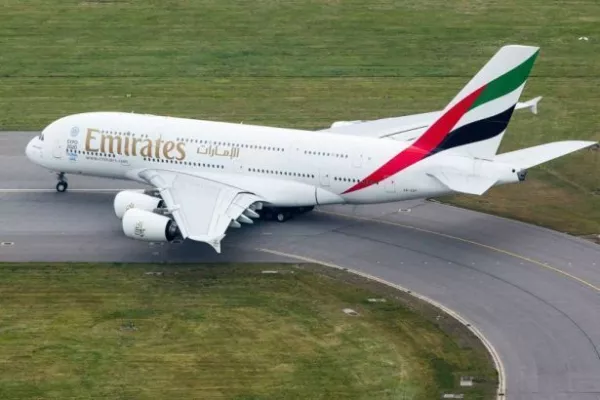Emirates will "work smart and hard" to improve its performance after the Gulf airline's profit hit a decade low as soaring fuel costs and a strong dollar took a toll on earnings, while passenger growth stalled.
After years of growth, during which it has become one of the world's biggest airlines as other long-established national carriers have struggled, Dubai-based, state-owned Emirates warned last week profit would be lower than previous years.
It revealed just how badly it had fared on Thursday May 9, reporting a 69% fall in net profit to 871 million dirhams ($237 million) in the year to March 31.
Meanwhile, the number of passengers flying Emirates rose 0.2% to 58.6 million, its weakest growth rate in at least 15 years, while cargo increased 1.4% to 2.7 million tonnes.
Chairman Sheikh Ahmed bin Saeed al-Maktoum said in a statement that the year had been "tough", with higher oil prices, a strong dollar and stiffer competition, adding "our performance was not as strong as we would have liked".
While revenue at the airline rose 6% to 97.9 billion dirhams, its profit fell to its lowest level since 2009, and profit at Emirates Group, which includes other units, fell 43.7% to 2.3 billions dirhams, its lowest since 2012.
Despite the profit fall, Emirates said it will pay the Investment Corporation of Dubai a dividend of 500 million dirhams for the year.
"Smart And Hard"
Sheikh Ahmed said it was difficult to predict the year ahead but Emirates would "work smart and hard to tackle the challenges and take advantage of the opportunities."
Unfavourable currency moves in key markets cost Emirates $156 million, while operating costs rose 8% with the airline recording its biggest ever fuel bill of 30.8 billion dirhams.
Emirates filled an average of 76.8% of passenger seats, slightly lower than the previous year, while increasing the number of available seats by 4%.
Fare increases helped Emirates register a 3% increase in passenger margin, despite it filling fewer seats.
The number of airline employees fell by 2,074, or 3.3%. Overall group workforce rose 1.9% to 105,286.
Emirates agreed with Airbus in February to cancel dozens of A380 orders and buy smaller A350s and A330s as the planemaker scrapped production of the world's largest passenger jet.
Emirates, which will take 14 more A380s between this year and the end of 2021, is developing a new route network for a fleet that will include smaller aircraft, it said last week.
News by Reuters, edited by Hospitality Ireland. Click subscribe to sign up for the Hospitality Ireland print edition.









